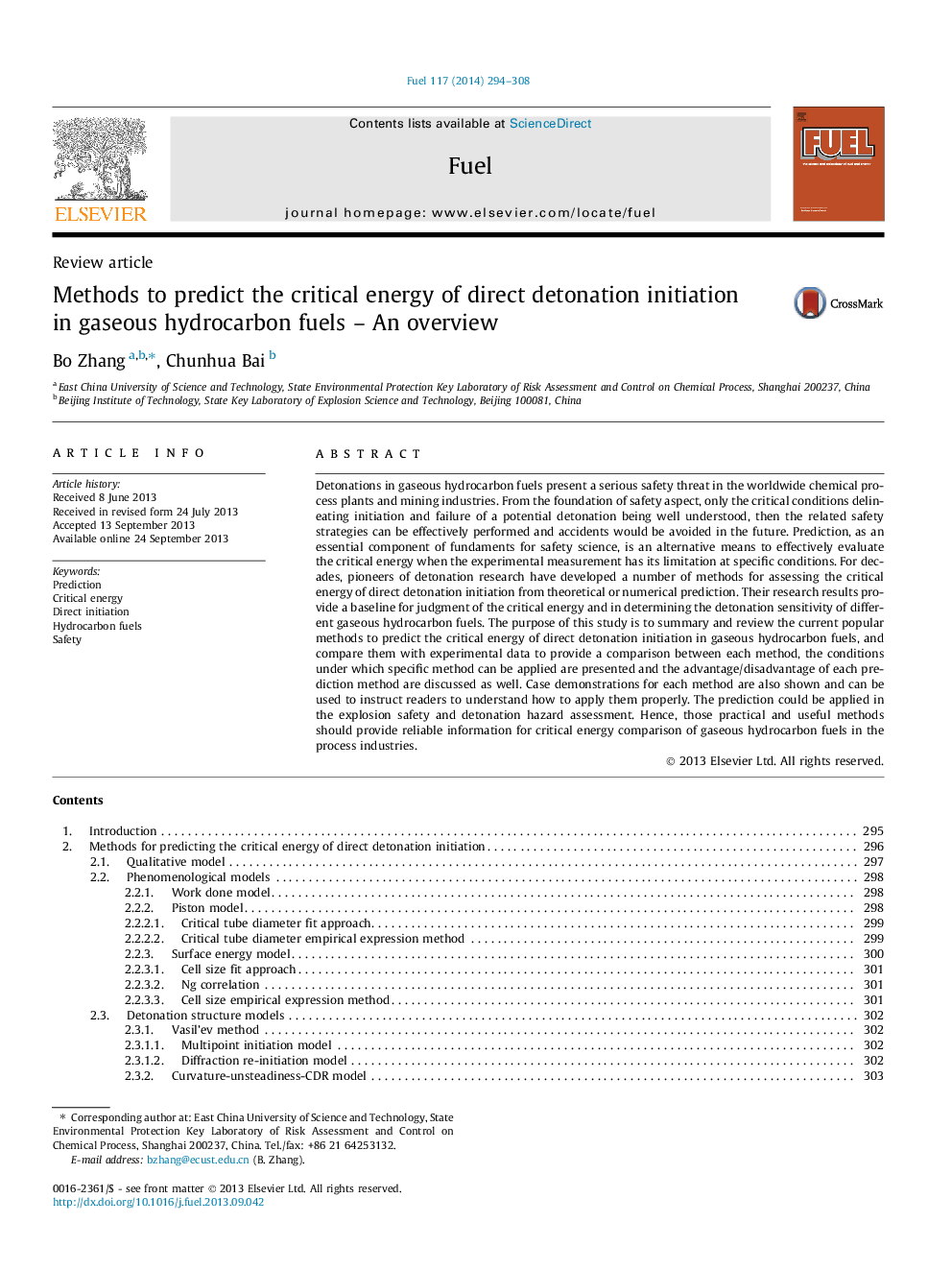| Article ID | Journal | Published Year | Pages | File Type |
|---|---|---|---|---|
| 10271874 | Fuel | 2014 | 15 Pages |
Abstract
Detonations in gaseous hydrocarbon fuels present a serious safety threat in the worldwide chemical process plants and mining industries. From the foundation of safety aspect, only the critical conditions delineating initiation and failure of a potential detonation being well understood, then the related safety strategies can be effectively performed and accidents would be avoided in the future. Prediction, as an essential component of fundaments for safety science, is an alternative means to effectively evaluate the critical energy when the experimental measurement has its limitation at specific conditions. For decades, pioneers of detonation research have developed a number of methods for assessing the critical energy of direct detonation initiation from theoretical or numerical prediction. Their research results provide a baseline for judgment of the critical energy and in determining the detonation sensitivity of different gaseous hydrocarbon fuels. The purpose of this study is to summary and review the current popular methods to predict the critical energy of direct detonation initiation in gaseous hydrocarbon fuels, and compare them with experimental data to provide a comparison between each method, the conditions under which specific method can be applied are presented and the advantage/disadvantage of each prediction method are discussed as well. Case demonstrations for each method are also shown and can be used to instruct readers to understand how to apply them properly. The prediction could be applied in the explosion safety and detonation hazard assessment. Hence, those practical and useful methods should provide reliable information for critical energy comparison of gaseous hydrocarbon fuels in the process industries.
Related Topics
Physical Sciences and Engineering
Chemical Engineering
Chemical Engineering (General)
Authors
Bo Zhang, Chunhua Bai,
